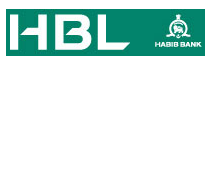Travel Tips
Travel tips help make your tour safer, more hassle-free, comfortable and happier. Here you will find the most important tips that will make your holiday in Sri Lanka a wonderful one indeed.
Greeting
The Sinhalese traditional way of greeting is by saying 'Ayubowan!' which means 'may you live long!' with hands clasped at chest height and bowed slightly. The same gesture accompanies the word 'Vanakkam' among Tamils.
Money
Currency: The Sri Lankan Rupee is made up of 100 cents. Currency notes in circulation are in denomination of Rs 5000, 2000, 1000, 500, 100, 50, 20, 10 and coins of Rs 10, 5, 2, 1 and 50, 25 cents. Visitors bringing in excess of USD 15,000 into Sri Lanka should declare the amount on arrival. All Sri Lankan Rupees should be re-converted upon leaving the country.
Banking Hours
All banks in the country are usually open for the public from 0900 hrs to 1500 hrs from Monday to Friday, but some banks in Colombo have extended their opening hours up to 1800 hrs. Commercial Bank Mini Com branches and Sampath Bank Super branches remain open even on public holidays.
Customs Duty-free Allowances
Import on arrival: visitors to Sri Lanka are officially required to declare all currencies, valuable equipment, jewellery and gems etc. All personal effects should be taken back on departure. Visitors are not allowed to bring in goods in commercial quantities, or prohibited/restricted goods such as dangerous drugs, weapons, explosive devices or gold. Drug trafficking or possession leads to severe punishments up to the death penalty. In addition to completing Part II of the Immigration Landing Card, a tourist will be required to fill in a Baggage Declaration Form too. You are allowed to bring 1.5 litres of spirits, 2 bottles of wine, 200 cigarettes, 50 cigars or 250g rolling tobacco, a small quantity of perfume and 250ml of toilet water. You can also bring in a small quantity of travel souvenirs not exceeding US$ 250 in value.
Professional photography or filming equipment must be declared and will be allowed entry on a valid Carnet, Bank Guarantee or a refundable deposit to the tune of the duty payable on the items.
Conduct
Cleanliness and modesty are appreciated even in informal situations. Nudity and topless bathing are prohibited and subject to heavy fines. Display of intimacy is not considered suitable in public and will probably draw unwanted attention. Women in rural areas do not normally shake hands with men as this form of contact is not traditionally acceptable between acquaintances.
Hands & Eating
Use your right hand for giving, taking, eating or shaking hands as the left hand is considered to be unclean. Do not shake hands with a Buddhist Monk or a Hindu Swami. Greet them with your hands clasped together as if a prayer and raising them to your forehead bending slightly forward. When handing objects to another person, using right hand or both hands would be appreciated by the receiver.
Visiting Places of Worship
Visitors to Buddhist and Hindu temples are welcomed though the shrines of Hindu temples are sometimes closed for non- Hindus. However, visitors to any place of worship in Sri Lanka are expected to be decently clad covered down at least below knees, unshod and heads uncovered. It is best to visit places of worship early in the day and to take thick socks for protection against the hot stone floor. Do not attempt to shake hands or be photographed with Buddhist monks or to pose for photos with statues of the Buddha or other deities and paintings. Visitors may offer flowers at the feet of the Buddha statues. Mosques may be closed to non- Muslims shortly before prayers.
Homosexuality
Homosexuality is illegal in Sri Lanka. Any sexual activity against the order of nature and any act of gross indecency shall be guilty of an offence and subject to imprisonment up to 15 years according to Sri Lanka's Penal Code. Therefore, it would be prudent not to commit such sexual acts.
Women
When compared with many other countries, it is relatively easy and safe for women to travel around Sri Lanka, even on their own. There are some problems to watch out for and some simple precautions to take so that possible personal harassments and giving offence can be avoided. Modest dress for women is always advisable: loose-fitting, non-see-through clothes, covering the shoulders, and skirts, dresses or shorts (at least knee-length).
Smoking
Smoking is prohibited in public places. Please observe nonsmoking rules.
In Conversation
In conversation Sri Lankans can be quite personal. This simply reflects the emphasis Sri Lankans place on family life.
Photography
Photography at most tourist sites is prohibited except without permission. A photography fee will be charged.
Safety
Theft is not uncommon especially when travelling by train or in a crowded bus. It is essential to take much care of personal valuables when you are carrying them, and when you have to leave them anywhere. You cannot regard hotel rooms are always safe. It is wise to use hotel safes for valuable items. It would be better to keep credit cards and passports with you at all times.
Even after taking all the reasonable precautions, people do have valuables stolen. You can minimize this by keeping a record of vital documents, including your passport number, credit card numbers etc., in a separate place. If you have items stolen, it should be reported to the police without delay. Larger hotels will be able to help in contacting and dealing with the police which can be difficult. The paper work involved in reporting losses can be time consuming and irritating. Tourists should not assume that if procedures move slowly they are expected to offer a bribe. If you face really serious problems, e.g. in case of a driving accident, you should contact your consular office as quickly as possible.
Unwritten Rules of the Road
The rule of 'might is right' applies. Never overtake a vehicle in front of you which indicates to the right. It usually means that it is unsafe for you to overtake and rarely means that they are about to turn right. Flashing headlights mean 'get out of the way, I'm not stopping'. In these circumstances it is advisable to give the oncoming vehicle adequate space, since they usually approach at high speed. Roundabouts are generally a free-for-all, so take your chance cautiously. Horns are used as a matter of course, but most importantly when overtaking to warn the driver being overtaken. It is also used to warn vehicles and pedestrians approaching the main road from a side road since they rarely look. Most Sri Lankan drivers appear to take unbelievable risks, notably overtaking at ridiculous times (e.g. when approaching a blind bend). It is essential to be aware of the danger from fool-hardy driving and anticipate the mistakes that Sri Lankan road users might commit.
Driving Permit
Foreigners intending to drive in Sri Lanka are required to obtain a recognition permit which is valid only for one year. This is a simple process. Just call the Automobile Association of Sri Lanka at 40, Sir M M Markar Mawatha, Galle Face, Colombo 3. Tel: 2421528, 2446074 Fax: 2320454. Open 0800hrs-1600hrs, Monday-Friday except on public holidays. If you do not have an International Driving Permit but do have your country licence, you must apply for a temporary Sri Lankan Driving Licence from the Registrar of Motor Vehicles, Department of Motor Traffic at Werahera. Tel: 011 254 5893/2. Temporary driving licences are issued on payment of Rs 2500 + VAT per month up to a maximum period of one year. (Rates are subject to change)
Mains Electricity
Mains power in Sri Lanka is 230V @ 50Hz AC. Some top hotels have transformers/converters enabling visitors to use their appliances. There may be pronounced variations in the voltage and power cuts are common, but most hotels have standby power generators. As socket types vary, it is advisable to take a universal adapter (available at airports). D-type sockets are widely used, so make sure this is included. Some hotels do not have electric razor sockets. It is difficult to obtain shaver adapters for Sri Lankan sockets in shops outside Sri Lanka, so a battery operated shaver is recommended.
Business Hours
Post Offices: Open 0800hrs-1700hrs Monday-Friday and
Saturday Mornings
Government Offices: Open 0900hrs-1600hrs Monday-Friday; 0930hrs-1300hrs Saturday.
Restaurants and Bars: Permitted hours are 1100hrs-1400hrs and 1700hrs-2300hrs. No alcohol is served on Poya Days. Wine stores are open from 0900hrs to 2100hrs.











